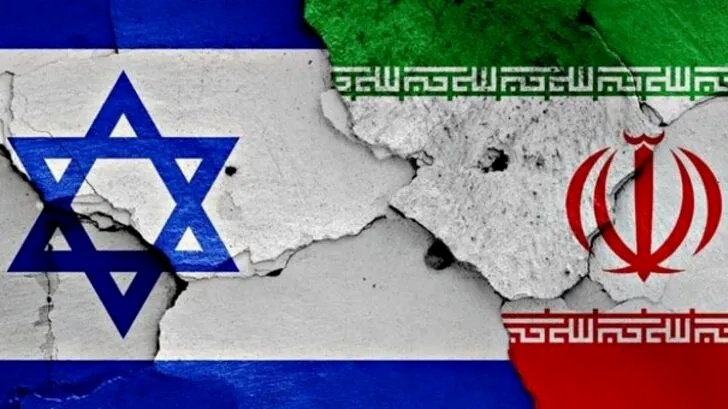
In June 2025, Israel launched attacks on key facilities including the Iranian state television building, prompting Iran to retaliate swiftly. The intensifying clashes have sharply escalated geopolitical risks in the Middle East, sending shockwaves through global financial markets like a boulder dropped into a lake.
As a major global oil producer, Iran’s role in the Middle East oil supply chain has become a focal point of market anxiety. Israel’s strikes triggered fears of disrupted Iranian oil exports, instantly pushing crude prices higher. The West Texas Intermediate (WTI) crude oil futures for July surged by 7.26% in settlement, while Brent crude oil futures for August rose by 7.02%. Domestic crude oil futures in China jumped nearly 6%, hitting a two-month high.
The potential blockade of the Strait of Hormuz—through which 20% of global crude oil is transported—looms as a critical risk, with analysts warning oil prices could breach $120 per barrel. Capital inflows into oil markets spiked, with U.S. crude oil option volumes surging to 681,000 contracts on June 13. The call option for August 2025 with a strike price of $80 saw 33,400 trades in a single day, the highest since January. These price swings reverberate through industries: rising energy costs squeeze transportation profits, inflate chemical raw material prices, and disrupt supply chain stability.
Gold, a timeless haven asset, witnessed a dramatic surge. Following Israel’s airstrikes, spot gold prices spiked by $58 in a single day, breaking through the $3,440 per ounce threshold to reach a recent high of $3,446.32. Domestic spot gold in China rose to 793.20 yuan per gram, up 1.42%. Investors flocked to gold for hedging, driven by fears that the conflict could derail global economic recovery. The surge in gold ETF holdings—with inflows hitting their highest in six months—reflects widespread demand for asset preservation.
Local stock markets bore the brunt initially: Israel’s Tel Aviv 35 Index opened 1.5% lower, extending last week’s 1.5% decline; Saudi Arabia’s Tadawul All-Share Index plunged 2.5%, while Egypt’s EGX30 Index nosedived 7.7%—its worst single-day drop in over a year. The Israeli shekel crashed by over 3% against the U.S. dollar, hitting an 11-month low.
Global spillovers were evident: Hong Kong’s Hang Seng Index fell 0.59%, with the Hang Seng Tech Index dropping 1.72%. U.S. stock index futures tumbled over 1%, with S&P 500 futures down 2%. Japan’s Nikkei 225 and European markets followed suit, with pan-European indices, Germany’s DAX, and France’s CAC all shedding over 1%. These declines reflect dimmed corporate earnings outlooks and investor jitters about global growth prospects.
The U.S. dollar, traditionally a safe haven, faced challenges: the U.S. Dollar Index fell 2% in the week after the conflict, while the euro rose 3% against the dollar. The Egyptian pound hit a record low of 50.6 to the dollar, and the Russian ruble dropped 4%. Cryptocurrencies proved volatile: Bitcoin fell over 3% below $103,000, and Ethereum dropped nearly 7%, highlighting their vulnerability during geopolitical crises.
Soaring oil prices pose a threat of imported inflation, particularly for oil-dependent economies in Europe and Asia. Rising production costs for businesses could squeeze consumer spending, while central banks may delay planned rate cuts. The U.S. Federal Reserve, for instance, might reassess its dovish stance if inflation pressures intensify, creating headwinds for global liquidity.
The Israel-Iran conflict has unleashed multifaceted shocks on international financial markets. As long as the conflict persists, volatility in energy, precious metals, equities, and currencies is likely to continue. Investors must monitor developments closely and adjust portfolios prudently, while governments and central banks face the challenge of stabilizing economies amid geopolitical uncertainty. The episode underscores how regional conflicts can reverberate globally, testing the resilience of interconnected financial systems.

On January 7th local time, GameStop (GME.US) announced that the company's board of directors had approved a potential executive compensation package worth $3.54 billion, which was targeted at the company's CEO, Ryan Cohen. At the same time, this new compensation package set extremely high performance thresholds: Cohen, the CEO, needed to increase the company's market capitalization from $9.5 billion to $100 billion.
On January 7th local time, GameStop (GME.US) announced that…
According to the British media The Guardian, recently US Pr…
In today's era of deep integration of globalization and dig…
In early 2026, US President Trump forcibly took control of …
Recently, the corn market dynamics analysis released by Aus…
Donald Trump has proposed an "immediate" restriction on lar…